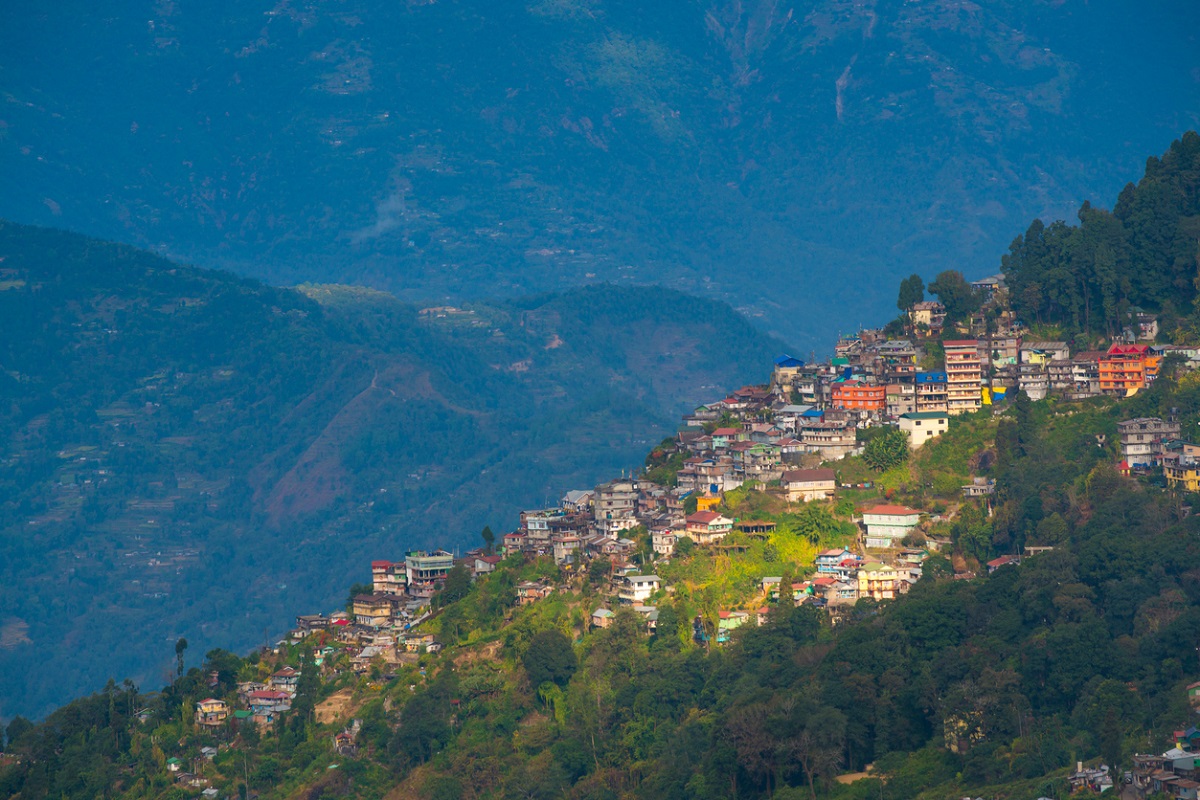Hate speech: BJP leader George seeks time to appear before police
George on Saturday requested the police for an extension until February 24 to appear before them for investigation in connection with the case.
The hills’ people disgruntlement with the BJP would obviously work to the advantage of its chief rival, ruling Trinamool.

Darjeeling town (Image: iStock)
Are the tides in the northern districts of the state of West Bengal already turning in favoring of the Trinamool Congress, less than a year to go before the Parliamentary elections of 2024? It would seem that way just from the criticism that Trinamool’s chief political rival, the Bharatiya Janata Party, is receiving from their traditional supporters in the hills. In fact, they include their own party members and even elected legislators.
Take for instance, the recent comments by Neeraj Zimba, the BJP’s MLA from the Darjeeling constituency, who is also the general secretary of the Gorkha National Liberation Front (GNLF). Taking on his own party, he had said last month that as the ruling party at the Center, it had promises to keep as far as the hills people were concerned. Part of the promise was to arrive at a “permanent political solution” to the problems of the hills, including that of meeting a demand by certain sections of the hills people for land based on identity and language.
Advertisement
Bimal Gurung, chief of the Gorkha Jana Mukti Morcha (GJM), which had been an ally of the BJP because of the BJP’s equivocal stance on the issue of Gorkhaland (as Opposed to the Trinamool government’s stance which unequivocally ruled out the division of Bengal and the creation of Gorkhaland) too demanded from the BJP why the promises to the hills people were not yet delivered.
Advertisement
The hills’ people disgruntlement with the BJP would obviously work to the advantage of its chief rival, ruling Trinamool. However, it is not just by default that Triamool is winning the trust of the hills people gradually.
Slowly and steadily, the Trinamool government has been working on the ground to reclaim lost turf in northern Bengal. In order to reverse the trend over the past decade during which time the Bharatiya Janata Party has been gaining ground in the state – it has gone from just one Member of Parliament in 2009 to eighteen in 2019 – Didi has introduced a number of schemes targeting the uplift of the people of Darjeeling and the hills or northern Bengal.
From creating the Gorkhaland Territorial Administration in 2012, a year after she came to power, to introducing languages spoken by the hills people (who have long been disgruntled that their languages do not get adequate representation in formal institutions) into the school syllabuses, the focus, clearly, has been too woo back the people of the northern region.
In fact, that Mamata Banerjee is not taking any chances as far as northern districts are concerned, is evident from the way she has been campaigning in the northern districts for every election – whether rural, state or general. She has not even let campaigning for the upcoming by-election, scheduled for September 5, slip from her hand. She didn’t just go to Dhupguri, the northern constituency going to the polls to campaign, she also took along Abhishek Banerjee, her nephew and Trinamool’s All India General Secretary.
Of course, the Dhupguri constituency is significant because in the last elections it was won by BJP. The seat fell vacant following the death of the BJP MLA. Before the seat was snatched from Trinamool in the Assembly elections of 2016, it was one of Didi’s turfs. Dominated by the Rajbangshis, another group of people demanding recognition of their identity and language, Trinamool’s schemes are said to have worked in favor of the community, especially the introduction of their language into the school syllabuses.
If the tides are indeed turning in favor of Trinamool, it could not have come at a better time – when it is headed for the Parliamentary elections in just a few months.
Advertisement